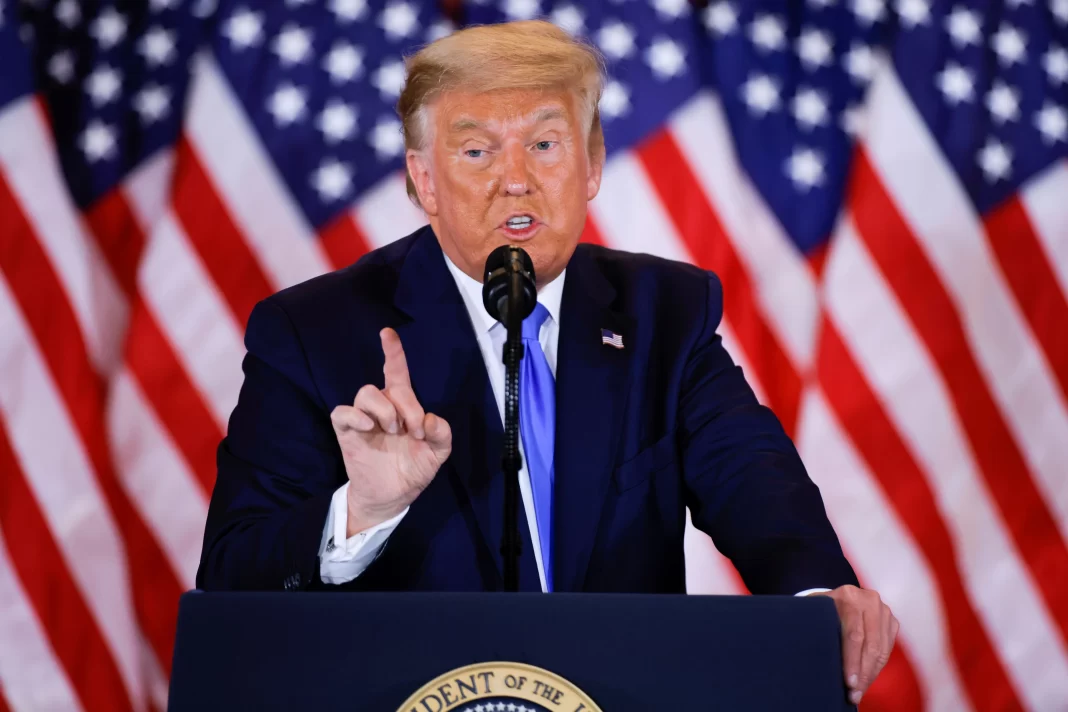A constitutional query has surfaced amid the excitement around USA’s 2024 Presidential election. Can Donald Trump legitimately stand on the ballot? This issue stems from the 14th Amendment’s lesser-known Section Three. It prohibits anybody involved in insurrection or revolt from holding political office. Since the events of January 6, 2021, this provision, which had previously remained dormant, has gained attention. The subsequent argument is on whether Trump’s participation in the uprising disqualifies him from running for president in 2024.
Michael McConnell, a conservative originalist, presents a different perspective that urges caution. He asserts that removing Trump from the ballot would be undemocratic and divisive. McConnell emphasizes a broad interpretation of Section Three, allowing voters to choose candidates, and upholding democratic norms.
Examining history, the Reconstruction era post-Civil War holds significance. The 13th, 14th, and 15th Amendments granted rights to formerly enslaved individuals, a move towards inclusivity. Pro-democratic exclusion was evident too, shaping political participation. A key principle emerged: Constitution allegiance over racial or personal loyalties. This shift defines a “true American” as one valuing democratic ideals. Understanding democratic protection clauses’ modern use requires historical context.
From Reconstruction, pro-democratic exclusion was safeguarded against undermining democracy. Balancing loyalty, inclusivity, and opposition to rebellion arises as a central question today. The debate over Trump’s 2024 candidacy exposes the conflict between constitutional fidelity and democratic inclusion. Historical lessons underscore Constitution adherence for unity. The protection of democracy demands an equilibrium between inclusivity and the prevention of actions harming democratic norms. Addressing exclusion remains intricate, laden with ethical implications.

